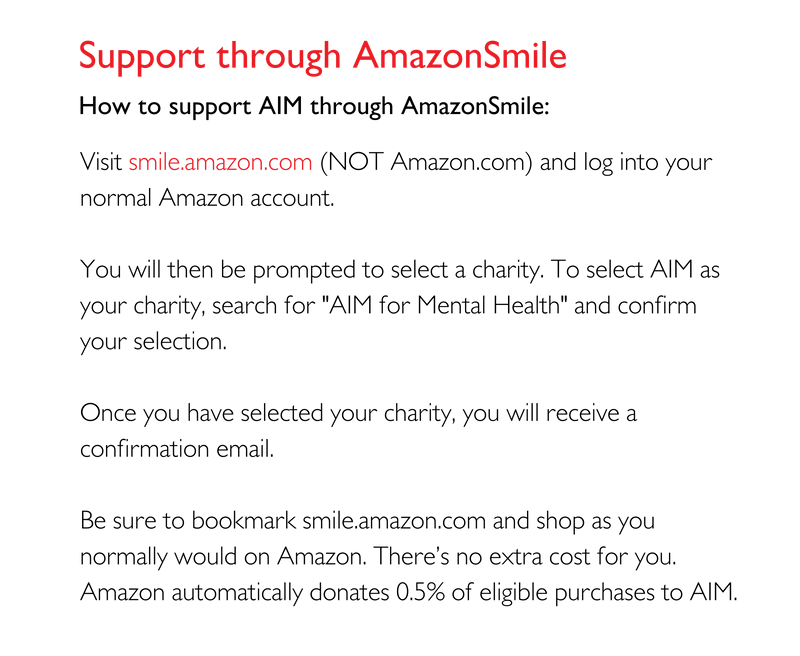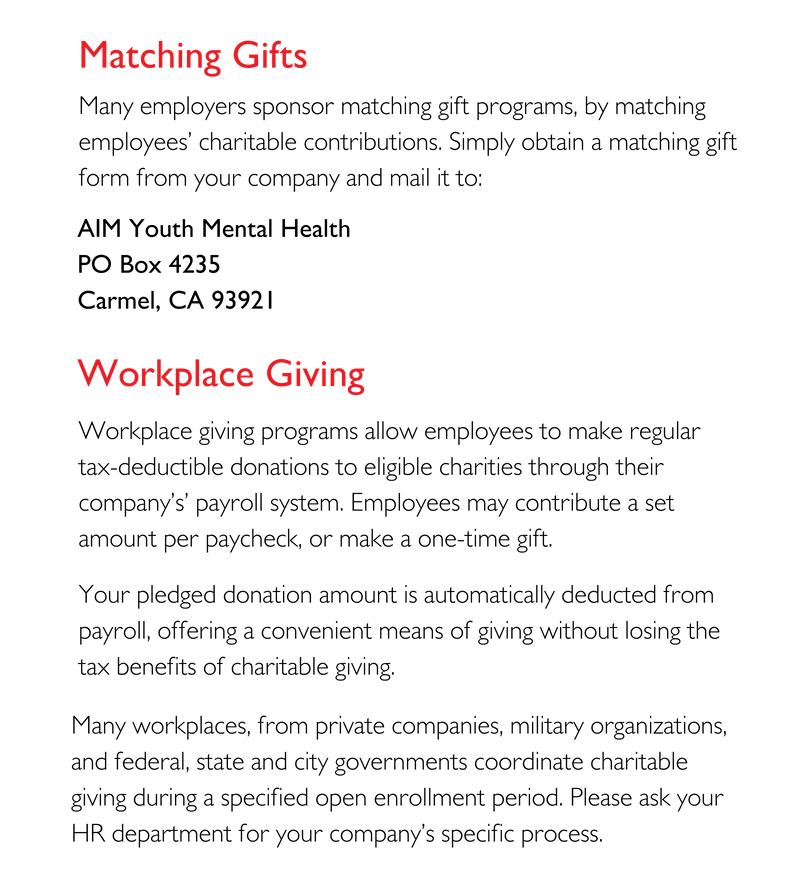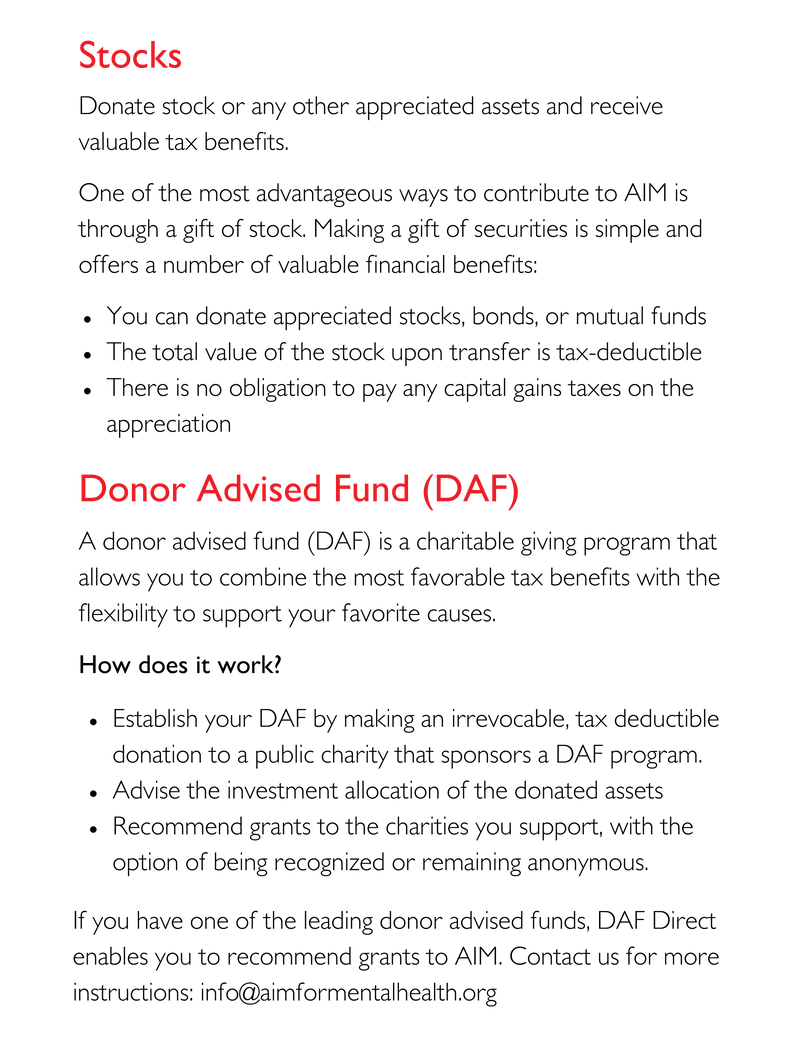

By Meadowlark Monaghan, AIM Youth Advisory Board Member
For many, the holidays act as a cataclysm for stress.
According to C.S. Mott’s National Poll on Children’s Health, one in six parents report high stress levels during the holidays, with one in five stating that said stress negatively impacts their child’s experience of the season… Couple that with nearly one in five children experiencing a diagnosable mental health condition, and stress becomes as synonymous with the holidays as chestnuts roasting on an open fire.
With a holiday prevalence analogy linking mental illness straight to food, it’s no surprise that one such particular stressor comes from a group of mental illnesses seemingly overlooked despite their exorbitantly grave outcomes: eating disorders.
Eating disorders have the 2nd highest mortality rate of any mental illness, with nearly 1 person dying every 52 minutes as a direct result of their illness. It goes without saying that parenting a child with an eating disorder is unbelievably scary—eating disorders can wreak havoc on an adolescent’s body, affecting their cardiovascular, endocrine, neurological, and gastrointestinal systems, and place the entire family unit into crisis mode.
That is exactly what Mohina C., mother of a daughter with an eating disorder, was experiencing as she began seeking treatment interventions for her daughter. Despite both being physicians, Mohina and her partner struggled to find treatment options. With a growing desperation, Mohina found solace in online Facebook Groups that acted as virtual peer support resources for her during this time… and even pointed her to a new treatment intervention that changed the course of their family’s life.
Via these groups, Mohina stumbled upon Dr. Walter Kaye, the founder and director of the Eating Disorders Center at the University of California San Diego, an AIM grant recipient and member of the organization’s Scientific Advisory Board.
Kaye leads a team of researchers and clinicians devoted to understanding the neurological bases of eating disorders and using knowledge of the brain to improve treatment. With the help of AIM, they developed a series of video training sessions for families looking to support a member with an eating disorder.
“What these videos did for us… was basically to put it all together,” Mohina shared, “it was like a survival guide for parents truly going through turmoil.”
Mohina found that oftentimes providers sought to help families educate themselves through a book list that rivals college curriculum. The accessibility of Dr. Kaye’s videos were especially impactful for her as her family was in crisis mode. With an understanding of how pivotal quick, safe, and effective interventions are needed to save a child’s life, Dr. Kaye’s videos provided a roadmap to healing at a time that Mohina and her family needed it most.
“There is nothing more precious than your child’s physical and mental health. Our children are suffering. Our children’s mental health is a public mental health crisis right now. We all need to stand up and do something about it.
Because of AIM, I’m very confident that this research and these treatment modalities will be ongoing, and that many, many families will get the help that families like ours (even though we’re two physicians) were not able to find.”
AIM Youth Mental Health understands that youth mental health is at a pivotal time for intervention. Over 50% of lifetime mental illnesses begin around age 14. For these young people, the right treatment can be life-changing—and lifesaving. Yet unfortunately, many young people don’t receive the mental health support they need, often due to barriers such as stigma, fear, and lack of accessible treatment options.
AIM is on the frontlines of solving the youth mental health crisis by providing mental health programming for young people, along with training for caring adults and support for scientific research that results in groundbreaking new solutions. Not only is AIM targeting interventions at this pivotal age to set up the next generation of mentally healthy individuals, they actively engage and empower youth along the process.
One marvelous example of said programming is the AIM Ideas Lab. Over 1,600 teenagers from 23 schools engaged with AIM’s Ideas Lab, which empowers high school students to discover their own mental health solutions through research, peer conversations, and sharing their ideas and experiences.
In fact, from a feedback survey after the 2023 AIM Ideas Lab:
- 80% of participants strongly agree that they have gained research skill by participating in the program
- 87% strongly agree they have learned how to have safe and helpful conversations about youth mental health
- 87% strongly agree they feel like they made a positive impact on youth mental health
Mohina is just one parent whose family has been impacted by the scope of AIM’s commitment to empowering youth and giving hope to children and families facing the struggles that mental health challenges bring. We understand that as a public mental health crisis, youth participation in their own solutions and care is equally as important as the cutting-edge research we continue to fund.
“When you’ve gone through this much unexpected turmoil, you speak from the heart” Mohina chokes up, “thank you AIM for taking upon yourself such an important, important task of helping our children.”
Mental health has been an ignored and stigmatized topic for far too long. Together, we are bringing mental health out of the shadows and helping young people receive the tools and support they need. We hope you will join us this Giving Tuesday as we work to create a world of mentally healthy children and youth.
Please consider giving a tax-deductible gift to AIM this Giving Tuesday.
______________________
About the Author
Meadowlark Monaghan (she/hers) is a consultant using her knowledge gained as a mental health professional to act as a liaison between brands, creators, + online communities with the field of psychology and mental health. She also co-hosts the personal development podcast, Thoughts May Vary. Her work has been seen with Madhappy, Local Optimist, The Mayfair Group, Lonely Ghost, AIM Youth Mental Health, NAMI San Diego and more.



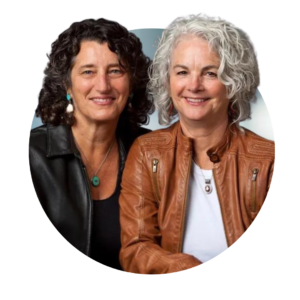
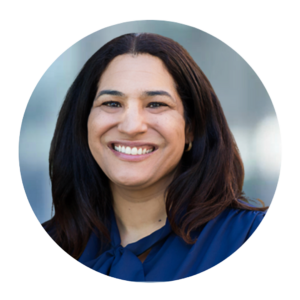
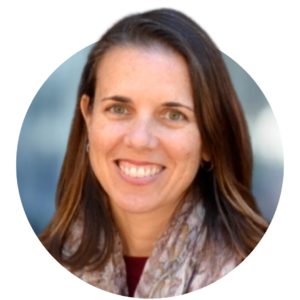






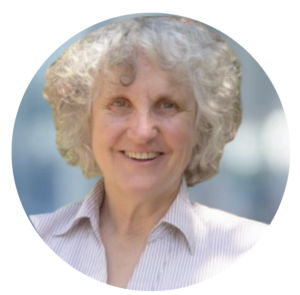
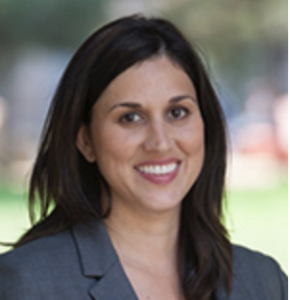


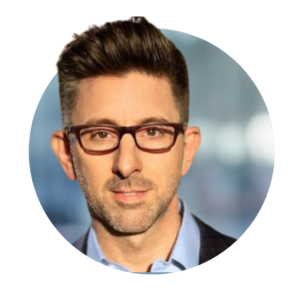
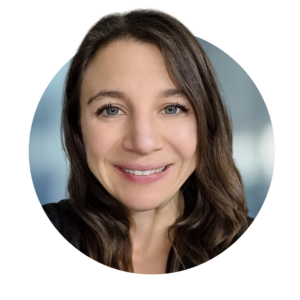
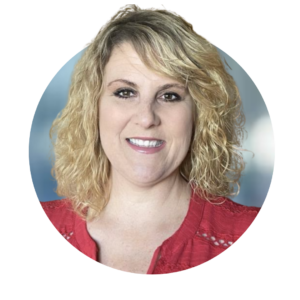 Moving Upstream: A Proactive Approach to Addressing Behaviors and Bullying
Moving Upstream: A Proactive Approach to Addressing Behaviors and Bullying Krista Reuther is the Assistant Director of Ohana’s Community Health and Prevention Program. She received her Masters in Public Health and Social Work at UC Berkeley. She comes to this position after 14 years of clinical social work experience at Stanford Children’s Hospital in pediatric oncology, critical care, and bereavement. Her goal is to reduce the incidence of mental illness in children and adolescents in Monterey County.
Krista Reuther is the Assistant Director of Ohana’s Community Health and Prevention Program. She received her Masters in Public Health and Social Work at UC Berkeley. She comes to this position after 14 years of clinical social work experience at Stanford Children’s Hospital in pediatric oncology, critical care, and bereavement. Her goal is to reduce the incidence of mental illness in children and adolescents in Monterey County. Dr. Guss is a 35-year veteran educator with a doctorate degree in Educational Leadership. She served as a classroom teacher for 10 years, including two years as a teacher in a bilingual program in South Central Los Angeles. She has also served as a college professor, mentor teacher for new teachers, and a master teacher for teacher candidates completing their student teaching experience. She continues to be a strong advocate for the teaching profession.
Dr. Guss is a 35-year veteran educator with a doctorate degree in Educational Leadership. She served as a classroom teacher for 10 years, including two years as a teacher in a bilingual program in South Central Los Angeles. She has also served as a college professor, mentor teacher for new teachers, and a master teacher for teacher candidates completing their student teaching experience. She continues to be a strong advocate for the teaching profession.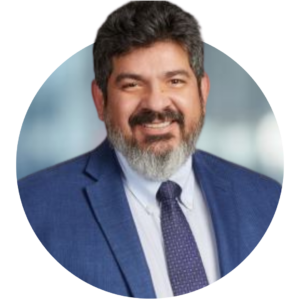 Fellowship: Stanford University School of Medicine (1994) CA
Fellowship: Stanford University School of Medicine (1994) CA Michael G. Thompson, Ph.D. is a consultant, author and psychologist specializing in children and families. He is the supervising psychologist for the Belmont Hill School and has worked in more than seven hundred schools across the United States, as well as in international schools in Central America, Europe, Africa and Asia.
Michael G. Thompson, Ph.D. is a consultant, author and psychologist specializing in children and families. He is the supervising psychologist for the Belmont Hill School and has worked in more than seven hundred schools across the United States, as well as in international schools in Central America, Europe, Africa and Asia.
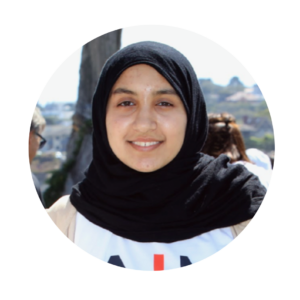 is 15 years old and a sophomore at Marina High School in Marina, CA. Her academic interests include math, history, and psychology. She joined the AIM Ideas Lab in 2021 because she wanted to be a part of something that could have a great impact on her community. Marwa is interested in youth mental health because she has always been fascinated with the human mind and she wants to support those that are suffering who may feel like their challenges in life aren’t important enough or are too afraid to seek necessary help.
is 15 years old and a sophomore at Marina High School in Marina, CA. Her academic interests include math, history, and psychology. She joined the AIM Ideas Lab in 2021 because she wanted to be a part of something that could have a great impact on her community. Marwa is interested in youth mental health because she has always been fascinated with the human mind and she wants to support those that are suffering who may feel like their challenges in life aren’t important enough or are too afraid to seek necessary help.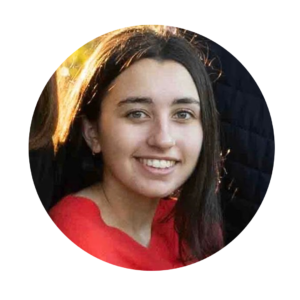 Giovanna Panetta is a 16 year old junior at Carmel High School. She has always been called to STEM subjects, specifically biology. The AIM Ideas Lab instantly attracted her attention as a research opportunity. Gia has always comprehended the importance of mental health. She knows that COVID only exacerbated previously existing problems, and that as a community we can try and find the root of those problems. Mental health is an integral part of life, and can impede a body’s ability to be healthy. She strongly believes that life is worth living, and she wants to help anyone that thinks otherwise.
Giovanna Panetta is a 16 year old junior at Carmel High School. She has always been called to STEM subjects, specifically biology. The AIM Ideas Lab instantly attracted her attention as a research opportunity. Gia has always comprehended the importance of mental health. She knows that COVID only exacerbated previously existing problems, and that as a community we can try and find the root of those problems. Mental health is an integral part of life, and can impede a body’s ability to be healthy. She strongly believes that life is worth living, and she wants to help anyone that thinks otherwise. Dr. Friedman completed her undergraduate degree in Psychology from University of California San Diego (UCSD). She went on to complete her masters and doctorate degrees (Ph.D.) in Clinical Psychology from Rosalind Franklin University of Medicine and Science/Chicago Medical School. Dr. Friedman completed her pre-doctoral internship at Rush University Medical Center, Chicago, IL, and her post-doctoral fellowship training at the VA San Diego Healthcare System. Her clinical training and experience has been focused primarily on comprehensive assessment and effective treatments for anxiety, mood and related disorders. Dr. Friedman has extensive experience in providing Cognitive Behavioral Therapies for anxiety disorders (e.g. worry, OCD, social anxiety, phobias and PTSD), depression, adjustment disorders/life stress, insomnia and body-focused repetitive behaviors (e.g. Trichotillomania and skin picking). She has received training in evidence-based interventions for a variety of specific problems, including exposure with response prevention (ERP) for treatment of OCD, Prolonged Exposure (PE) for treatment of PTSD, and Cognitive Behavioral Therapy for Insomnia (CBT-I). Moreover, she has specialty training in the treatment of childhood anxiety and related disorders, such as ADHD, selective mutism, separation anxiety, PTSD, depression and specific phobias. In addition, Dr. Friedman has developed an expertise in research on Trichotillomania and body-focused repetitive behaviors, which has led to numerous local and national presentations. Dr. Friedman regularly attends local and national conferences, training seminars and workshops in order to stay informed on the most up to date treatments and apply state of the art science into her clinical practice.
Dr. Friedman completed her undergraduate degree in Psychology from University of California San Diego (UCSD). She went on to complete her masters and doctorate degrees (Ph.D.) in Clinical Psychology from Rosalind Franklin University of Medicine and Science/Chicago Medical School. Dr. Friedman completed her pre-doctoral internship at Rush University Medical Center, Chicago, IL, and her post-doctoral fellowship training at the VA San Diego Healthcare System. Her clinical training and experience has been focused primarily on comprehensive assessment and effective treatments for anxiety, mood and related disorders. Dr. Friedman has extensive experience in providing Cognitive Behavioral Therapies for anxiety disorders (e.g. worry, OCD, social anxiety, phobias and PTSD), depression, adjustment disorders/life stress, insomnia and body-focused repetitive behaviors (e.g. Trichotillomania and skin picking). She has received training in evidence-based interventions for a variety of specific problems, including exposure with response prevention (ERP) for treatment of OCD, Prolonged Exposure (PE) for treatment of PTSD, and Cognitive Behavioral Therapy for Insomnia (CBT-I). Moreover, she has specialty training in the treatment of childhood anxiety and related disorders, such as ADHD, selective mutism, separation anxiety, PTSD, depression and specific phobias. In addition, Dr. Friedman has developed an expertise in research on Trichotillomania and body-focused repetitive behaviors, which has led to numerous local and national presentations. Dr. Friedman regularly attends local and national conferences, training seminars and workshops in order to stay informed on the most up to date treatments and apply state of the art science into her clinical practice. Dr. Piacentini is a board-certified clinical child and adolescent psychologist and Professor in the UCLA Department of Psychiatry and Biobehavioral Sciences. He directs the UCLA Child OCD, Anxiety, and Tic Disorders Clinic and Tourette Association Center of Excellence which provide diagnostic evaluation and treatment (both therapy and medication) for youth with the above problems. He also directs the UCLA Center for Child Anxiety Resilence, Education, and Support (CARES; carescenter.ucla.edu) which provides education and programming to parents, teachers, and clinicians about anxiety prevention and management.
Dr. Piacentini is a board-certified clinical child and adolescent psychologist and Professor in the UCLA Department of Psychiatry and Biobehavioral Sciences. He directs the UCLA Child OCD, Anxiety, and Tic Disorders Clinic and Tourette Association Center of Excellence which provide diagnostic evaluation and treatment (both therapy and medication) for youth with the above problems. He also directs the UCLA Center for Child Anxiety Resilence, Education, and Support (CARES; carescenter.ucla.edu) which provides education and programming to parents, teachers, and clinicians about anxiety prevention and management.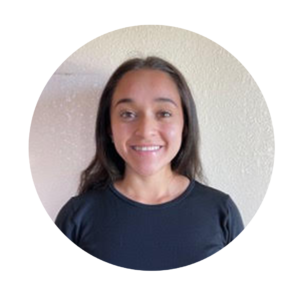 Citlalli Nava is 18 years old and a first year majoring in Psychology at Hartnell Community College in Salinas, CA. She is passionate about understanding how mental health affects how youth think, act, and feel. Citlalli joined the AIM Ideas Lab in 2021 after witnessing the increase in mental health challenges in teenagers and considering the mental health issues they are facing. Citlalli is interested in youth mental health because it is a real problem faced by her generation.
Citlalli Nava is 18 years old and a first year majoring in Psychology at Hartnell Community College in Salinas, CA. She is passionate about understanding how mental health affects how youth think, act, and feel. Citlalli joined the AIM Ideas Lab in 2021 after witnessing the increase in mental health challenges in teenagers and considering the mental health issues they are facing. Citlalli is interested in youth mental health because it is a real problem faced by her generation. Clinical and community psychologist and health care innovator Arthur C. Evans Jr., PhD, is CEO of the American Psychological Association, the leading scientific and professional organization representing psychology in the United States. With more than 146,000 researchers, educators, clinicians, consultants, and students as members, APA promotes and disseminates psychological knowledge to benefit society and improve lives – a mission consistent with Evans’ life work.
Clinical and community psychologist and health care innovator Arthur C. Evans Jr., PhD, is CEO of the American Psychological Association, the leading scientific and professional organization representing psychology in the United States. With more than 146,000 researchers, educators, clinicians, consultants, and students as members, APA promotes and disseminates psychological knowledge to benefit society and improve lives – a mission consistent with Evans’ life work.
